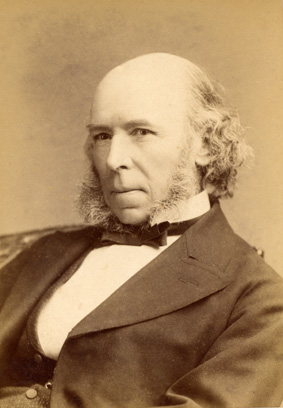Survival of the fittest
Survival of the Fittest[edit | edit source]
"Survival of the fittest" is a phrase that originated from Herbert Spencer's Principles of Biology (1864), in which he drew parallels between his economic theories and Charles Darwin's biological concepts. The phrase is often used to describe the mechanism of natural selection, a key component of evolutionary theory.
Origin and Meaning[edit | edit source]
The term "survival of the fittest" was first used by Herbert Spencer after reading Charles Darwin's "On the Origin of Species". Spencer used the term in his book "Principles of Biology" to describe the outcome of natural selection, where "fittest" refers to the best adapted to the environment, not necessarily the strongest or most intelligent.
Natural Selection[edit | edit source]
Natural selection is the process by which organisms better adapted to their environment tend to survive and produce more offspring. The theory of natural selection was first formulated by Charles Darwin in his book "On the Origin of Species". It is a key mechanism of evolution.
Misinterpretations[edit | edit source]
The phrase "survival of the fittest" is often misunderstood. It is commonly misconstrued to mean "survival of the strongest" or "survival of the most aggressive". However, in the context of evolutionary biology, "fitness" refers to an organism's ability to survive and reproduce in its environment.
Influence on Social Theories[edit | edit source]
Herbert Spencer's application of "survival of the fittest" extended beyond biology to sociology and economics, influencing the development of Social Darwinism. This ideology applied the concept of natural selection to human societies, often justifying social inequality, imperialism, and laissez-faire capitalism.
Criticism and Controversy[edit | edit source]
The application of "survival of the fittest" to social and economic theories has been widely criticized. Critics argue that it oversimplifies complex social dynamics and has been used to justify unethical practices. In biology, the phrase is considered a misrepresentation of Darwin's theory, which emphasizes adaptation rather than competition.
Related Pages[edit | edit source]
Search WikiMD
Ad.Tired of being Overweight? Try W8MD's physician weight loss program.
Semaglutide (Ozempic / Wegovy and Tirzepatide (Mounjaro / Zepbound) available.
Advertise on WikiMD
|
WikiMD's Wellness Encyclopedia |
| Let Food Be Thy Medicine Medicine Thy Food - Hippocrates |
Translate this page: - East Asian
中文,
日本,
한국어,
South Asian
हिन्दी,
தமிழ்,
తెలుగు,
Urdu,
ಕನ್ನಡ,
Southeast Asian
Indonesian,
Vietnamese,
Thai,
မြန်မာဘာသာ,
বাংলা
European
español,
Deutsch,
français,
Greek,
português do Brasil,
polski,
română,
русский,
Nederlands,
norsk,
svenska,
suomi,
Italian
Middle Eastern & African
عربى,
Turkish,
Persian,
Hebrew,
Afrikaans,
isiZulu,
Kiswahili,
Other
Bulgarian,
Hungarian,
Czech,
Swedish,
മലയാളം,
मराठी,
ਪੰਜਾਬੀ,
ગુજરાતી,
Portuguese,
Ukrainian
Medical Disclaimer: WikiMD is not a substitute for professional medical advice. The information on WikiMD is provided as an information resource only, may be incorrect, outdated or misleading, and is not to be used or relied on for any diagnostic or treatment purposes. Please consult your health care provider before making any healthcare decisions or for guidance about a specific medical condition. WikiMD expressly disclaims responsibility, and shall have no liability, for any damages, loss, injury, or liability whatsoever suffered as a result of your reliance on the information contained in this site. By visiting this site you agree to the foregoing terms and conditions, which may from time to time be changed or supplemented by WikiMD. If you do not agree to the foregoing terms and conditions, you should not enter or use this site. See full disclaimer.
Credits:Most images are courtesy of Wikimedia commons, and templates, categories Wikipedia, licensed under CC BY SA or similar.
Contributors: Prab R. Tumpati, MD

